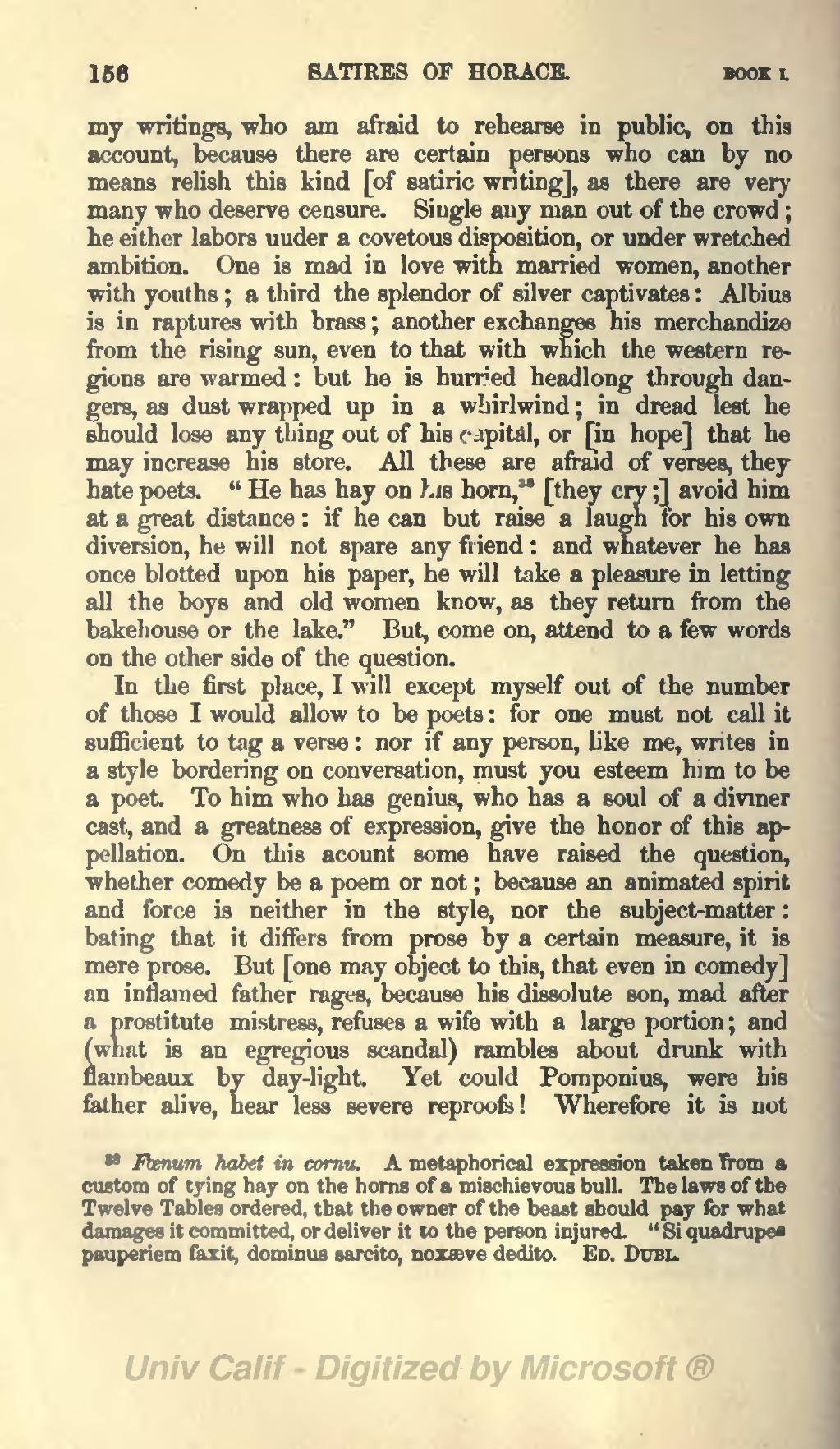my writings, who am afraid to rehearse in public, on this account, because there are certain persons who can by no means relish this kind [of satiric writing], as there are very many who deserve censure. Single any man out of the crowd; he either labors under a covetous disposition, or under wretched ambition. One is mad in love with married women, another with youths; a third the splendor of silver captivates: Albius is in raptures with brass; another exchanges his merchandize from the rising sun, even to that with which the western regions are warmed: but he is burried headlong through dangers, as dust wrapped up in a whirlwind; in dread lest he should lose anything out of the capital, or [in hope] that he may increase his store. All these are afraid of verses, they hate poets. “He has hay on his horn, [they cry;] avoid him at a great distance: if he can but raise a laugh for his own diversion, he will not spare any friend: and whatever he has once blotted upon his paper, he will take a pleasure in letting all the boys and old women know, as they return from the bakehouse or the lake.” But, come on, attend to a few words on the other side of the question.
In the first place, I will except myself out of the number of those I would allow to be poets: for one must not call it sufficient to tag a verse: nor if any person, like me, writes in a style bordering on conversation, must you esteem him to be a poet. To him who has genius, who has a soul of a diviner cast, and a greatness of expression, give the honor of this appellation. On this account some have raised the question, whether comedy be a poem or not; because an animated spirit and force is neither in the style, nor the subject-matter: bating that it differs from prose by a certain measure, it is mere prose. But [one may object to this, that even in comedy] an inflamed father rages, because his dissolute son, mad after a prostitute mistress, refuses a wife with a large portion; and (what is an egregious scandal) rambles about drunk with flambeaux by day-light. Yet could Pomponius, were his father alive, hear less severe reproofs! Wherefore it is not
